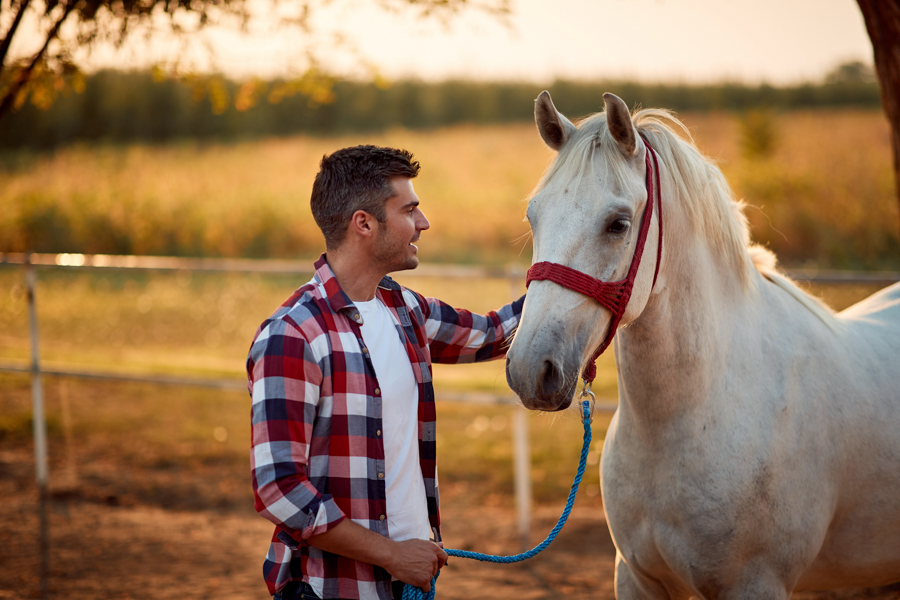
Addiction is a complex problem that affects millions of individuals worldwide. It not only takes a toll on their physical health but also impacts their mental, emotional, and social well-being. While there are various forms of treatment available, recreational therapy has emerged as a promising approach for individuals struggling with addiction. By incorporating leisure activities and creative outlets, this therapy aims to promote recovery and improve overall quality of life.
Recreational therapy may be a great option for you or a loved one in need of extra support in addiction recovery. Learn how our addiction treatment programs in Fresno County can help.
Recreational therapy is a form of therapy that utilizes activities and leisure experiences to promote physical, mental, and social well-being. It is often used as a complementary approach to traditional forms of therapy and can be beneficial for individuals with various disabilities, illnesses, or mental health concerns.
One of the primary goals of recreational therapy is to improve an individual’s overall quality of life by increasing their participation in enjoyable and meaningful activities. This type of therapy can also help individuals develop new skills, build self-confidence, and enhance their overall sense of happiness and fulfillment.
Recreational therapists use a variety of interventions and techniques tailored to meet each individual’s specific needs and interests. These types of recreational therapy may include sports, games, arts and crafts, music, outdoor activities, and more. The therapist may also incorporate skill-building exercises or mindfulness therapy into the sessions.
In addition to helping individuals improve their physical and mental well-being, recreational therapy can also be used to facilitate social interactions. By participating in group activities or team-building exercises, individuals can learn valuable communication skills, build relationships with others, and develop a sense of belonging.
Recreational therapy is a unique approach to treatment that utilizes leisure activities to improve physical, emotional, and cognitive well-being. This type of therapy is often used in conjunction with our substance abuse and mental health treatments in Fresno County. Here are some of the benefits of recreational therapy:
Recreational therapy is one of our experiential and evidence-based therapies in Fresno County that addresses physical, emotional, social, cognitive, and spiritual needs through enjoyable leisure activities. It has proven to be an effective form of therapy for individuals of all ages and abilities.
This form of recreational therapy uses music as a means to improve physical, emotional, cognitive, and social well-being. It may involve listening to music, singing, playing instruments, or creating music.
This type of recreational therapy utilizes creative processes such as painting, drawing, sculpting, and other art forms to promote self-expression, reduce stress and anxiety, and enhance communication skills.
This type of recreational therapy incorporates movement and dance to improve physical coordination, flexibility, balance, body awareness, and self-esteem. It can also help individuals express emotions nonverbally.
This type of recreational therapy incorporates movement and dance to improve physical coordination, flexibility, balance, body awareness, and self-esteem. It can also help individuals express emotions nonverbally.
Interacting with animals has been found to have a positive impact on individuals’ physical and mental health. Recreational therapists may incorporate activities such as petting animals or participating in equine therapy to help individuals achieve therapeutic goals.
These types of recreational therapy involve outdoor activities such as hiking, camping, or rock climbing that promote personal growth, build self-confidence, and improve communication skills.
Using drama techniques such as role-playing or improvisation can help individuals explore their feelings and develop problem-solving skills.
Water-based activities like swimming or water aerobics can be used by recreational therapists to improve muscle strength and mobility while reducing stress on the joints.
Recreational therapists may also design programs that incorporate sports or recreation activities tailored to the individual’s needs and abilities for physical fitness promotion and socialization.
These types of recreational therapy aim to promote leisure education through educational activities, developing new interests, and providing opportunities for socialization.
Recreational therapy is a form of treatment that uses recreational activities, such as sports, music, and art, to address physical, emotional, and social issues. When it comes to treating addiction, recreational therapy can be effective in several ways.
Provides Alternative Coping Mechanisms: One of the main reasons why individuals turn to substance abuse is to cope with stress, negative emotions, or difficult situations. Recreational therapy offers a healthy and positive outlet for these feelings by engaging individuals in enjoyable activities. This helps them develop healthier coping mechanisms to manage their emotions without resorting to drugs or alcohol.
Enhances Physical Health: Regular participation in recreational activities can improve an individual’s physical health by promoting exercise and movement. Physical therapy can be particularly beneficial for those struggling with addiction as substance abuse often takes a toll on the body. Recreational therapy can help individuals regain their physical strength and stamina while also releasing endorphins which can improve mood and reduce cravings.
Promotes Social Connection: Addiction often leads to isolation and feelings of loneliness, which can further perpetuate substance abuse. Recreational therapy provides a supportive environment where individuals can connect with others who share similar interests or challenges. This sense of belonging and connection with others can help combat feelings of loneliness and provide a positive support system during recovery.
Increases Self-Esteem: Substance abuse can damage an individual’s self-esteem and sense of self-worth over time. Engaging in recreational activities allows individuals to achieve goals, build new skills, and experience a sense of accomplishment – all of which can boost self-esteem and confidence.
Encourages Mindfulness: Recreational therapy encourages individuals to be present in the moment and focus on the activity at hand. By redirecting attention away from negative thoughts or cravings related to substance abuse, individuals can learn how to better manage their impulses through mindfulness techniques.
Recreational therapy can be a valuable tool in treating addiction by providing alternative coping mechanisms, promoting physical health, fostering social connection, increasing self-esteem, and encouraging mindfulness. It can be used in conjunction with other forms of treatment such as residential treatment care (RTC) to support individuals on their journey toward recovery.
You may consider seeking recreational therapy if you are experiencing physical, emotional, or cognitive challenges that affect your ability to engage in leisure activities. These challenges can include substance use disorders, mental health disorders, physical disabilities, or cognitive impairments. Recreational therapy can also be beneficial for individuals recovering from injuries or illnesses.
If you are struggling with finding enjoyment in leisure activities due to any of the challenges mentioned above, recreational therapy may be a good option for you. Discuss your concerns and goals with a certified recreational therapist to determine if this form of therapy aligns with your needs and interests.
If you have tried other forms of therapy without much success, then recreational therapy may be a suitable option for you. Ultimately, the best way to determine if it’s right for you is by consulting with a professional who can assess your individual needs and preferences.
First Steps Recovery is an addiction treatment facility that recognizes the importance of incorporating recreational therapy into our rehabilitation programs. At our facility, individuals struggling with addiction have access to various types of recreational therapy such as hiking, yoga, art classes, team sports, and more. These activities are carefully selected and tailored to each individual’s interests and capabilities.
By incorporating recreational therapy into our programs, we strive to provide individuals with a well-rounded experience that addresses both physical and mental well-being. Contact us today to learn more about our treatment options.

From our certified therapists and nurses to our emotional support animal "Cooper", our entire team is dedicated to the health and success of our clients throughout our program and beyond.
Have questions about our experiential therapies? Let’s talk.
Art therapy programs allow clients to use their creativity and imagination to make create art that expresses what they truly feel in a healthy and productive way.
Equine therapy works with clients that have behavior issues, autism, and developmental disabilities and works with vets suffering from PTSD.
Wilderness therapy is a therapeutic intervention that utilizes nature as a backdrop, and adventure and exploration as a tool for growth and self-discovery.
Music therapy in a drug treatment setting utilizes music and various forms of musical expression in order for clients to self‐reflect as well as to assess where they are at right now and where they want to be in their recovery.
Yoga utilizes physical postures and controlled breathing that help lengthen and strengthen the spine, increase flexibility, and help calm the mind.
Recreation recovery is a new way of living life. Living clean and sober opens people up to whole new ways of having fun and enjoying life.
Physical wellness plays a huge part in the success of recovery. Maintaining a healthy weight, and getting the proper amount of vitamins, minerals, and proteins are all essential to repairing the damage done by drugs and alcohol.
Mindfulness therapy is a type of therapy that focuses on learning to notice thoughts, feelings, and surroundings without automatic responses.
Dayatra L.
Melissa B.
Bruce G.
Have questions about how our alumni program works? Let's talk.











© 2024 First Steps Recovery | Privacy Policy | All Rights Reserved.

Have questions about First Steps Recovery? We're here to help.
© Copyright 2023 • First Steps Recovery • All Rights Reserved